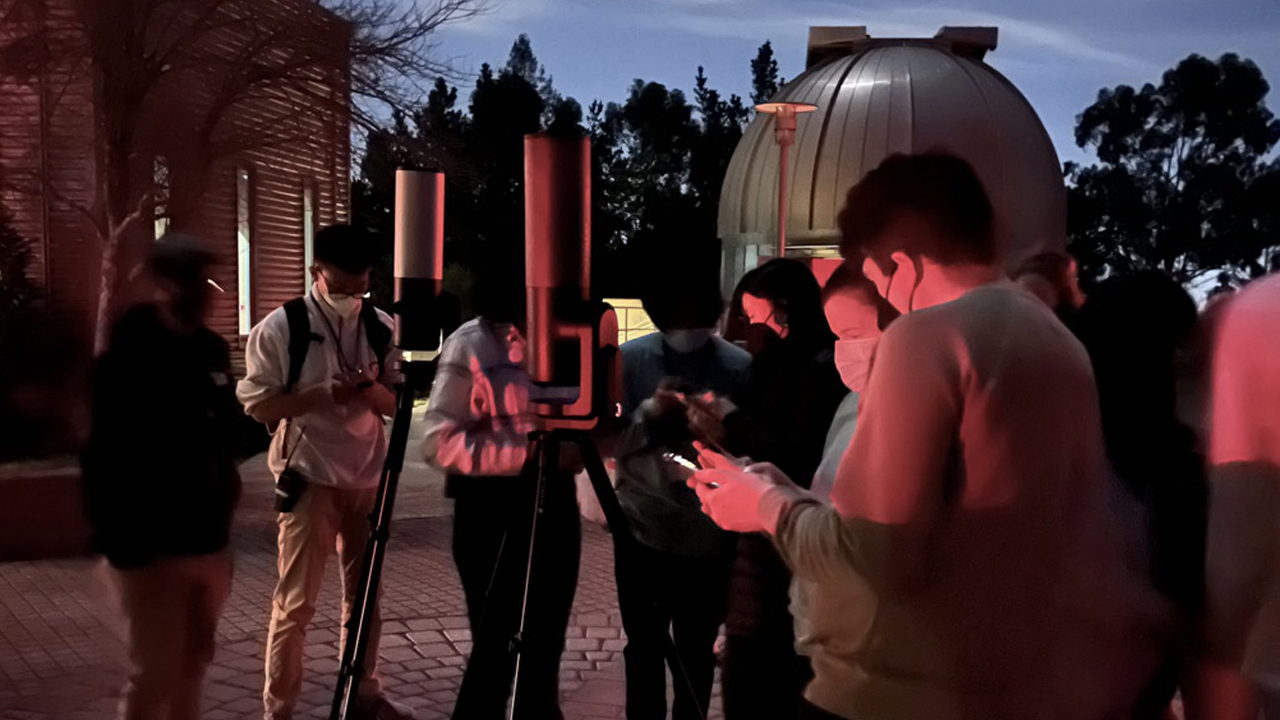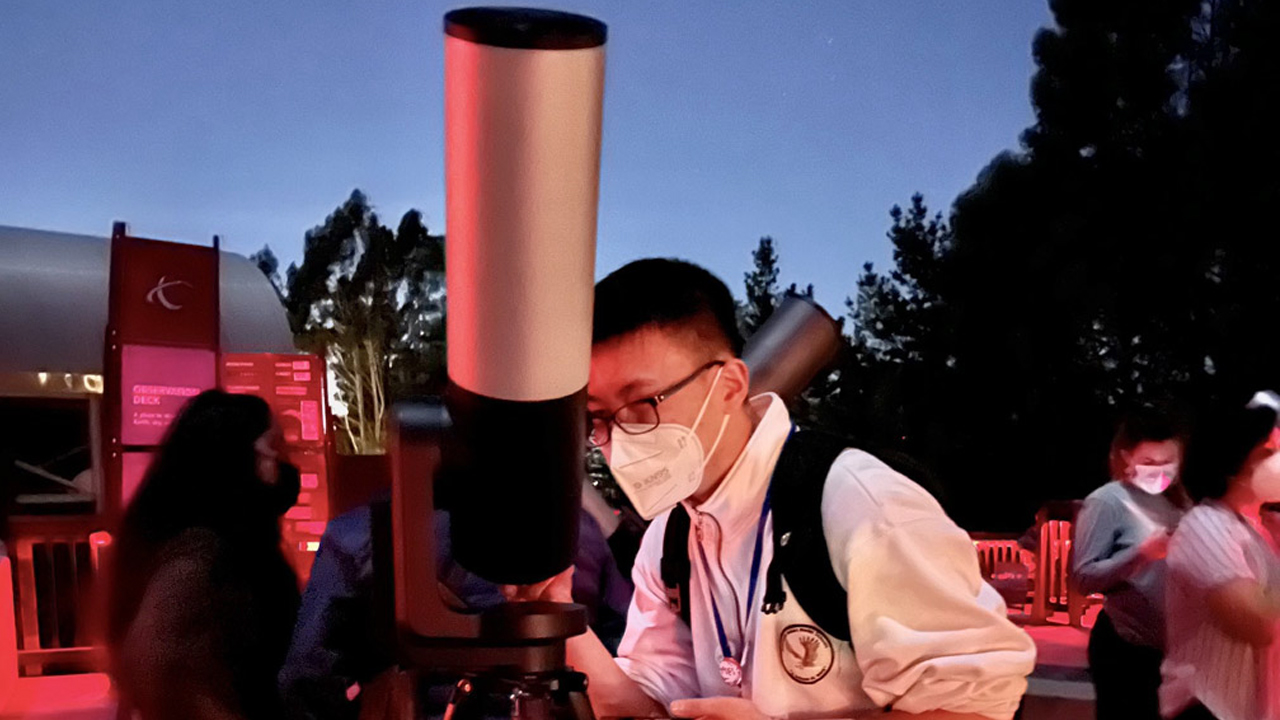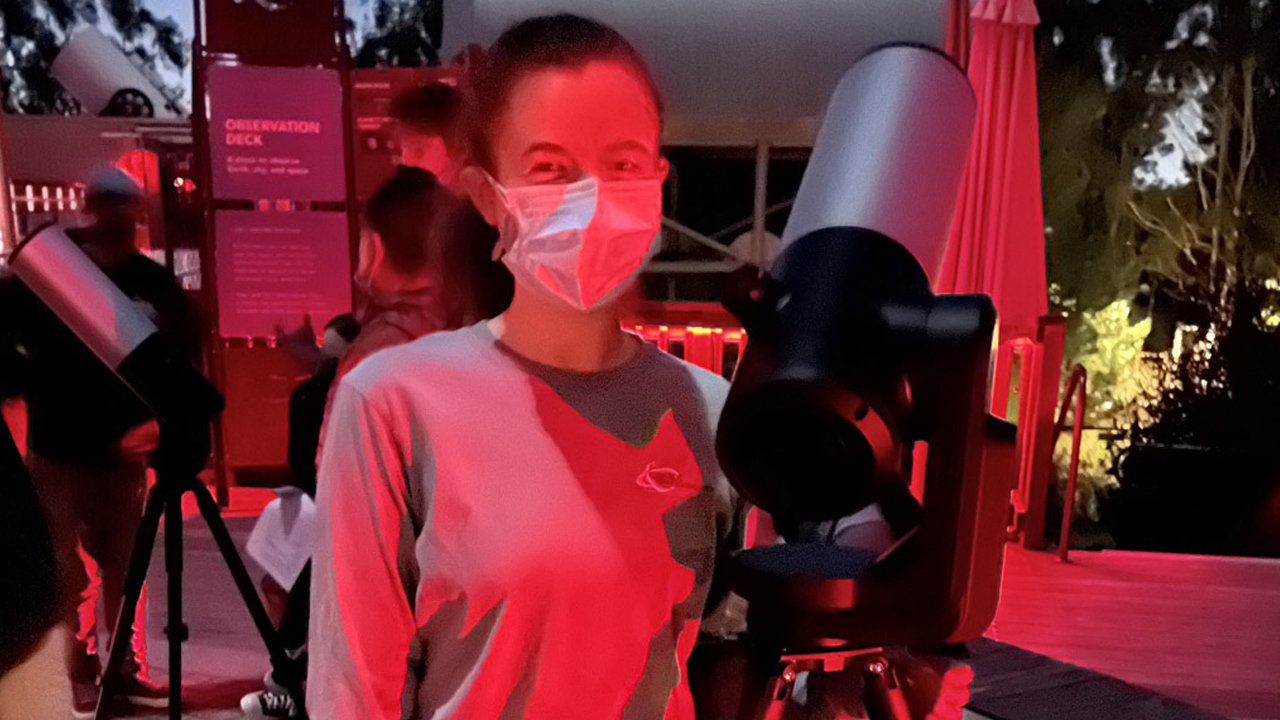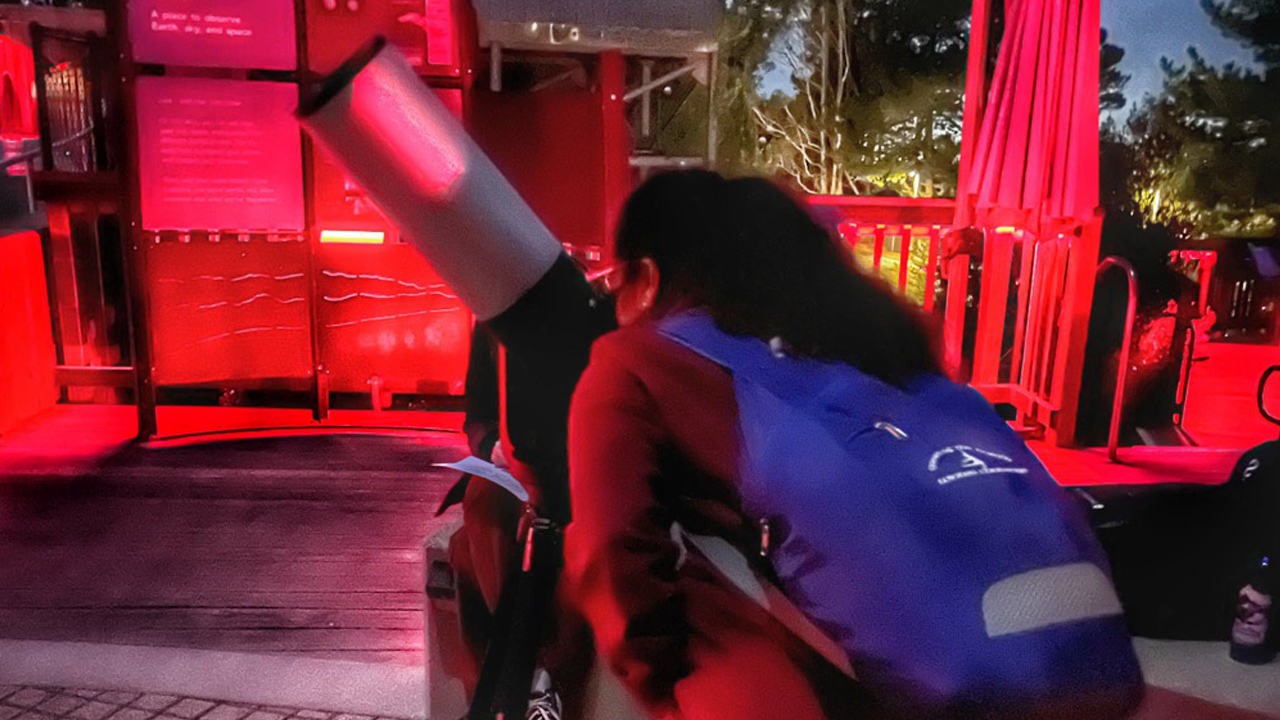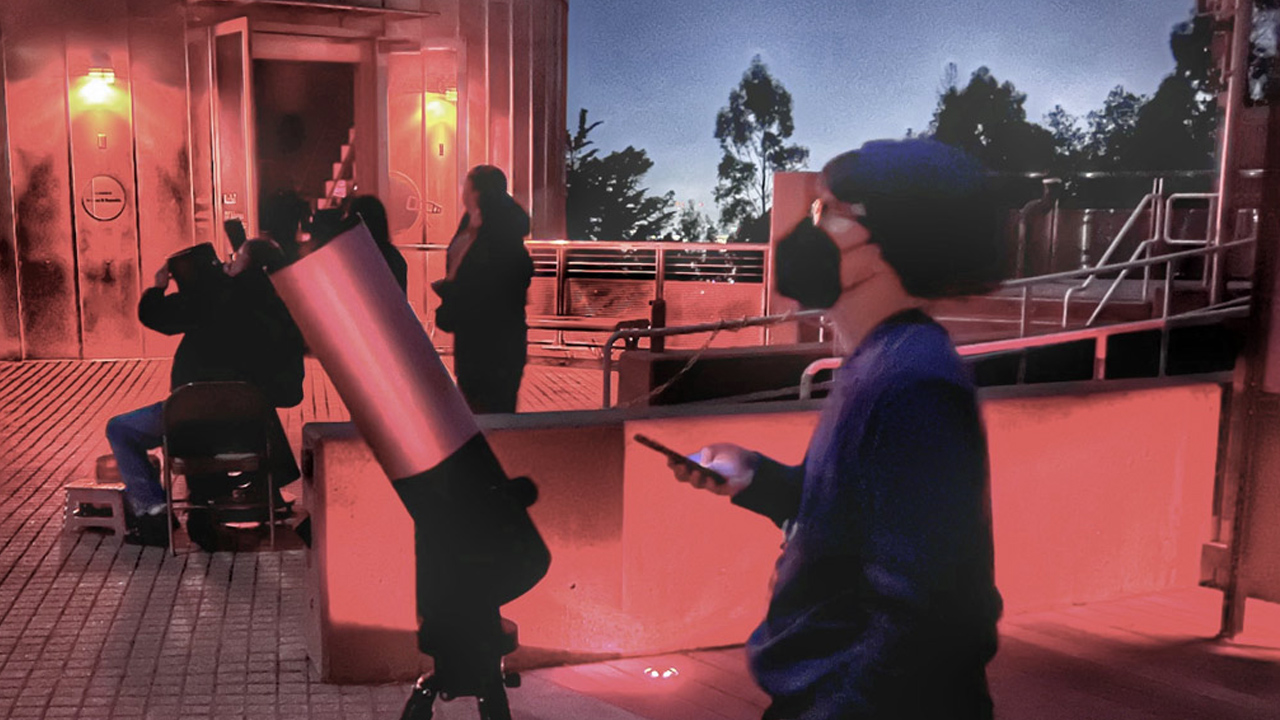In November 2021, and thanks to a generous grant from the Gordon and Betty Moore Foundation, the SETI Institute donated Unistellar eVscopes to the Chabot Space & Science Center’s (Oakland, CA) Galaxy Explorers high school program. Chabot’s Galaxy Explorers website describes Galaxy Explorers as a program that “provides high school students with an opportunity for hands-on, fun community service work while giving them a chance to develop their job skills, increase their STEM knowledge, and enhance public speaking.”
The Galaxy Explorers group of students led by Chabot Youth Development Instructor, Dan Stanton, has several special interest teams for the high school students involved. The eVscopes donated have been designated specifically for use by the astronomy interest team. This team is composed of mostly high school students, but there are a few undergraduate students that are veterans of the program helping to lead. About half of the students are interested in using eVscopes for Chabot community outreach and observation events, whereas the other half are interested in performing citizen science observations and learning data analysis.
What We’re Doing
Our team started our work with these students by training them on the basics of how to use the eVscope and introducing them to what the SETI Institute and Unistellar organizations are. We also introduced students to the opportunities available for conducting citizen science with eVscopes.
We have created a Galaxy Explorers/SETI Institute/Unistellar eVscope Discord channel to communicate observation and citizen science opportunities to the students, but also for the students to communicate with each other about astronomy and their own use of eVscopes for planning observations and science. We also provided a Padlet posting wall for the students to upload pictures taken with their eVscopes, as well as star party community pictures, or anything else they want to share with the world related to Galaxy Explorers. Our goal is for the students to take ownership of these and other collaborative tools so that their work is self-driven and organic.
With our support, some students have already used eVscopes for the Chabot Space & Science Center’s public astronomy viewing nights and helped show visitors images of deep space objects. Students with more interest in scientific observations and data analysis have now started asking about how they can get involved with eVscope citizen science observations of exoplanet transits and asteroids for planetary defense.
In addition to our open communication channel with the students on Discord, regular monthly in-person meetups are scheduled at Chabot to help train them more on using the eVscope, as well as to guide them through their first citizen science observations of asteroids and exoplanets. Some of the education materials developed for our other Unistellar projects (e.g. UCAN) are also being shared and utilized with these students.
Our goal is to help these students become self-driven and autonomous with both outreach and communication and running citizen science observations and analysis with their eVscopes so that they can lead the way for how they would like astronomy outreach and science to be done with their group at Chabot.


